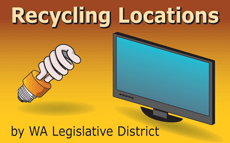Right to repair, fair repair, and patent laws
The necessity of "Right to Repair" laws is explored in a March 2017 article in Wired by Kyle Wiens, the co-founder and CEO of iFixit, "an online repair community and parts retailer renowned for its open source repair manuals and product teardowns."
"These days, performing all but the most basic repairs requires specialized tools and knowledge that companies like Apple and Samsung guard jealously... Not long ago, anyone with the time, tools, and patience could repair damn near anything... Then manufacturers started using copyright laws to keep their repair manuals offline, proprietary fasteners to seal their products, and in some cases, digital rights management to protect their software.
The same short-sighted policies that make it difficult to repair your phone or tablet make it equally hard to recycle it. All the challenges facing independent repair shops effect independent recyclers, too. Right-to-repair legislation would make it easier to fix anything electronic. Laptops. Televisions. Drones. Smart refrigerators. Even tractors. Anything driven by a processor or controlled by software has become all but impossible to repair. Just ask a farmer. Ten years ago, any farmer with a lick of sense could repair a tractor or other equipment, or summon a mechanic to do it. Now they find themselves beholden to dealerships with proprietary software and diagnostic tools."
According to Resource Recycling a May 2017 Supreme Court ruling means that "brands can’t use patent law to block the resale of their products". Wiens hailed the decision, saying "this cements your ability to resell or repurpose products without being beholden to the original patent holder." The Supreme Court ruling was on a dispute between "a company that makes printers (Lexmark) and a third-party company that makes and refills ink and toner cartridges for use in printers (Impression Products)." Consumerist, a subsidiary of Consumer Reports, reported that the ruling means "ultimately, that patent law recognizes that when you buy a thing, it’s yours, and the entity that made it doesn’t get to control it or you in perpetuity... Of course, patent law isn’t the only law in play. Companies use copyright law and DRM to control your purchases after you make them all the time, from digitally-distributed books, movies, and music to much more tangible goods, like your car. And, as the Supreme Court points out several times, contract law — terms and conditions you agree to — is still enforceable, apart from any patent exhaustion restrictions."
